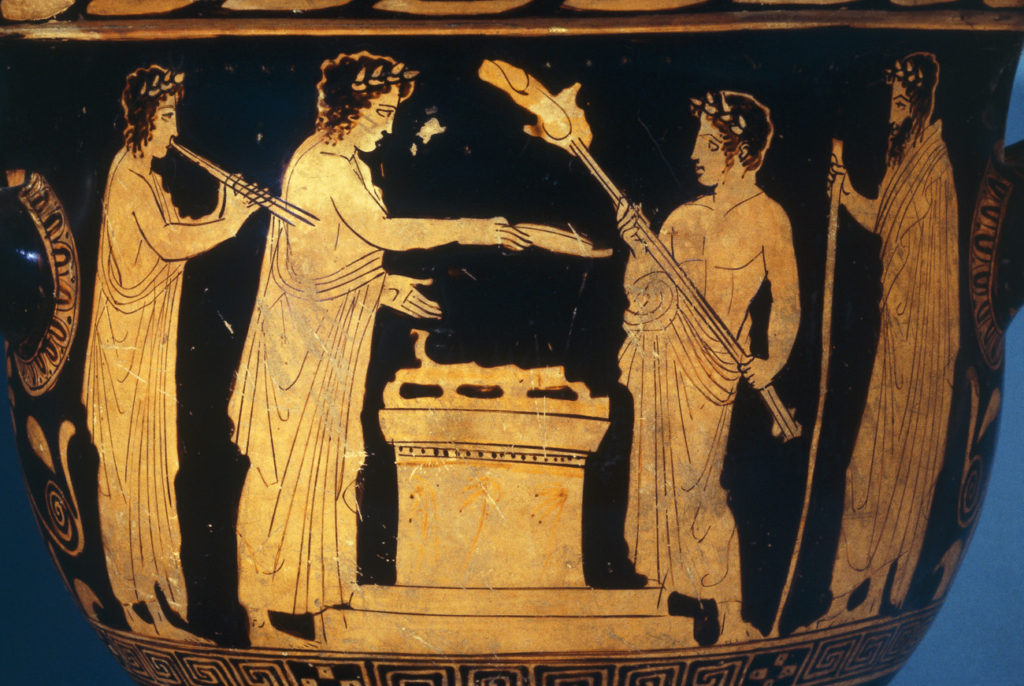Translated by Steven J. Willett

Red-figure vase of a ritual sacrifice with the priest pouring wine from a kylix (κύλιξ) while one assistant holds the flaming bull thigh and another plays on the pipes.
Note: The seventh strophe is addressed to Wilhelm Heinze, to whom all nine of Brod und Wein are dedicated. In Parts 7 and 8 the poet no longer can provide a relationship between gods and humans. Without a well-ordered and traditional society in which to function, they like Hölderlin wander as refugee priests of the wine-god Dionysus. The German text in Part 7:15~16 is extremely harsh in its despair: better to live without friends,
So zu harren und was zu tun indes und zu sagen,
Weiß ich nicht und wozu Dichter in dürftiger Zeit?
7. But friend! We have come too late. Surely the gods are living, But far over the head, high in a different world. Endlessly function they there and appear to esteem but little Whether we live, so much spare us the Heavenly. For not always a feeble vessel has strength to retain them, Only at times can endure humans the plenty of gods. Dream of them afterward is life. But entanglement wandering Helps, like slumber and strong makes distress and dark night, Till enough heroes have in the brazen cradle been nourished, Hearts in strength, as before, similar to Heavenly are. Thundering come they then. Meanwhile it seems for me often Better to sleep, than exist lacking in comrades to live. Just to be waiting and what to do or to say in the meantime Know I not and for what poets in meagerly years? But they are, say you, just like the holy priests of the wine-god, Who from a land to a land roamed in the reverent night. 8. Namely, before in a unique time, seems it so lengthy, Upward all of them rose, who so enchanted our life, When the Father his face reverted from all of us mortals, And the mourning with Right over the earth had begun, Finally appeared at the last a quiet Genius, quite heavenly Comforting, who of the day’s end asserted and shrank, Left as a sign, that formerly he’d been here and once again would Come, the heavenly choir several presents behind, Which we humanly, as once, were able to give us pleasure, Then to delight, with the mind, risen far greater to great Here among men and yet still, still fail the strong ones at highest Pleasure, but it exists quietly still in some thanks. Bread is a fruit of the earth, yet it’s sanctified by the sunlight, And from the thundering god comes the enjoyment of wine. Therefore think we also from that of the Heavenly, who once Here had been and who turn to us fitting the time. Therefore also are singing in earnest the singers to a wine-god And not idly devised sounding the ancient one’s praise.
